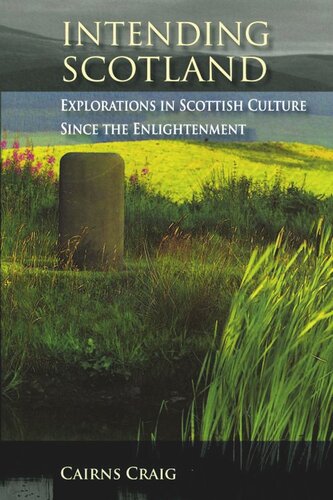

Most ebook files are in PDF format, so you can easily read them using various software such as Foxit Reader or directly on the Google Chrome browser.
Some ebook files are released by publishers in other formats such as .awz, .mobi, .epub, .fb2, etc. You may need to install specific software to read these formats on mobile/PC, such as Calibre.
Please read the tutorial at this link: https://ebookbell.com/faq
We offer FREE conversion to the popular formats you request; however, this may take some time. Therefore, right after payment, please email us, and we will try to provide the service as quickly as possible.
For some exceptional file formats or broken links (if any), please refrain from opening any disputes. Instead, email us first, and we will try to assist within a maximum of 6 hours.
EbookBell Team

5.0
98 reviewsIntending Scotland reconsiders our understanding of the development of Scottish culture from the Enlightenment to the present day.
The book recovers and reconnects Scottish thinkers from Hume and Reid in the eighteenth century, to Andrew Seth, Norman Kemp Smith and John Macmurray in the late nineteenth and twentieth centuries. It contextualises their work in relation to the development of Scottish anthropology and psychology, from which emerged, in the work of Ian Suttie and R. D. Laing, some of the most significant challenges to Freudian psychology. Craig uses this Scottish tradition to challenge theories of the nation over the last thirty years, providing critiques of Bhabha's 'hybridity' and of Anderson's 'imagined community', and of theories of 'the Other' within a postcolonial framework.
Ranging over Scotland's intellectual and cultural history across three centuries, taking in gardens and gardeners as well as historians and historiographers, scientists and engineers as well as philosophers and psychologists, Intending Scotland presents a reinterpretation of Scottish cultural life as radical as the developments in the nation's contemporary politics.